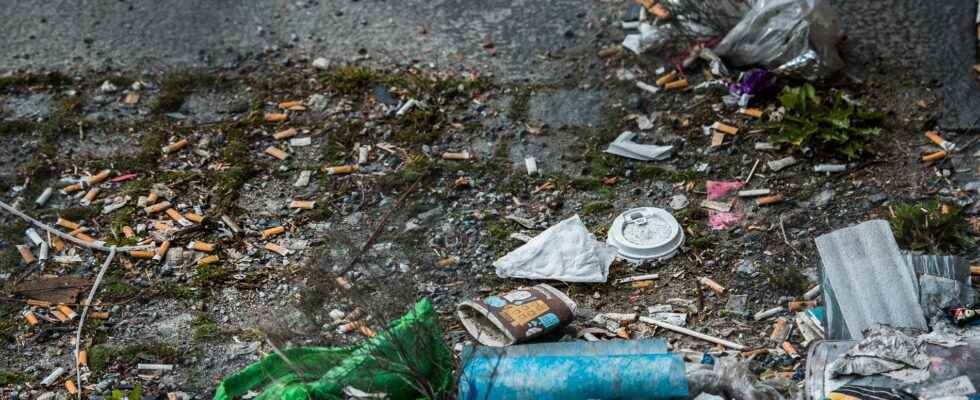Published: Just now
The municipalities must start weighing cigarette butts. Litter on Swedish streets can cost manufacturers dearly.
On January 1, the first part of the new littering fees, the so-called fixed fee, was introduced. It means that the manufacturers of products that are often thrown into nature will pay a fixed fee to the Swedish Environmental Protection Agency.
The fee will go towards financing national litter measurements and administering the fee system.
The second part, the variable part, will only come into effect at the turn of the next year, but may be costly for snuff and cigarette companies, for example.
Every week, 60 tons of trash are picked up from the streets, a cost that burdens municipalities from north to south. Now it is the producers who will foot the bill instead.
Retroactive fee
The municipalities must start reporting their costs for getting rid of the rubbish. That includes what it costs to pick up the rubbish, transport and treat it, as well as the bill for administration and information dissemination.
Cigarette butts must also be weighed. By March 21 at the latest, the municipalities must have reported their costs for 2022. These costs will be the basis for the size of the fee.
– It will be a retroactive fee that the producers pay. At the end of this year, we will publish what the fee will be. We must communicate that as clearly as possible and then, in 2024, they will start paying, says Petra Selander, manager at the producer responsibility unit at the Swedish Environmental Protection Agency.
Participating producers
The producers’ bill is calculated according to how much of the market they represent.
– The producers are keen to be involved in the work, of course. This will be a new fee for them. Therefore, they are keen that there is transparency and that they are allowed to participate in the process when we set the product fees, says Selander and continues:
– We have also said that the producers can do preventive work and be more active in the matter of littering. Several have done it too – the less their products litter, the lower their fee.
Since January 1 last year, private individuals can also be fined for throwing rubbish on the ground.
Facts
It counts as trash
Anyone who releases the following disposable products on the Swedish market is liable for a fee:
Disposable plastic lids for mugs
Flexible covers
Lunch boxes that are disposable plastic products
Mugs that are single-use plastic products
Plastic bottles for beverages and other beverage containers that hold less than 0.6 liters
Tobacco products with filters
Filter
Thin plastic carrier bags
Balloons (2025)
Wet Wipes (2025)
Source: Swedish Environmental Protection Agency
Read more
